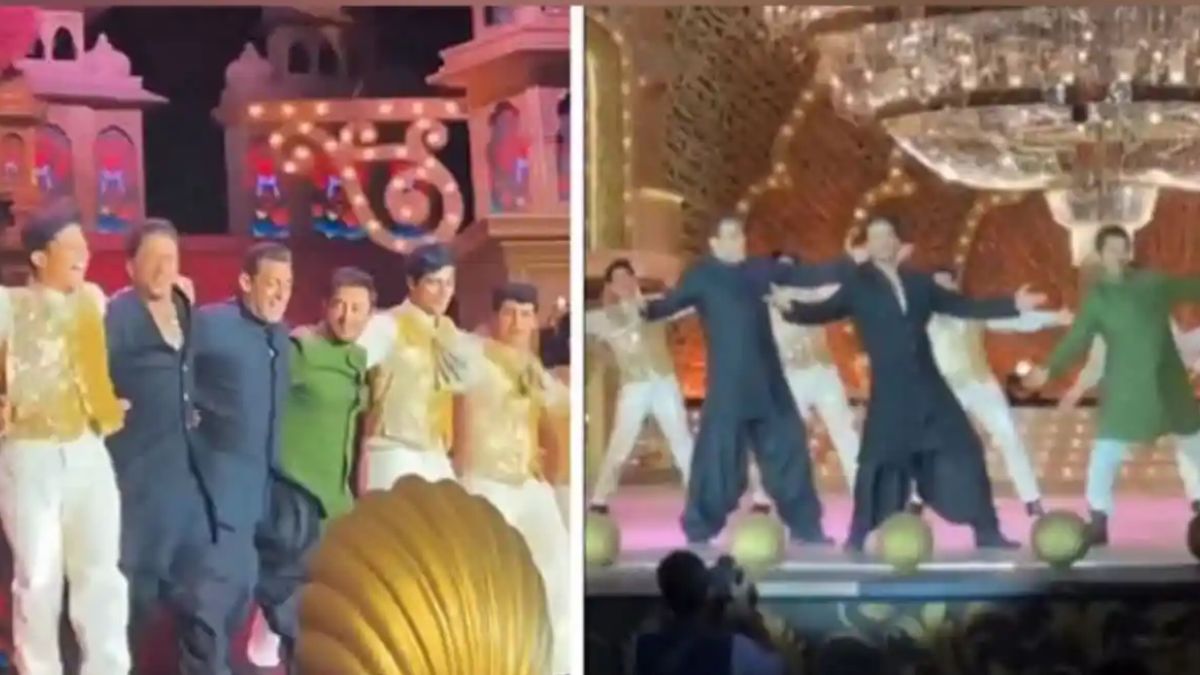The natural twinkle in her eyes does not fade as she recounts the birth of her only child. Shardatai Date, a resident of Ichalkaranji in Maharashtra, is telling us about her son Prathamesh in the opening minutes of the documentary Raising The Bar. “I was delighted to finally become a mother after 12 years of marriage,” she says. “But when I learnt that he has Down Syndrome I thought, God gave us a son after making us wait so long, but he had to be like this. I was saddened.”
Seated on the balcony of a home in what looks like a regular middle-class Indian neighbourhood, Shardatai adds: “People of the community, our neighbours and others, used to call him paagal (mad). Some even told me not to keep him alive, to smother him with a pillow and kill him.”
By this point in the film, we have already met Prathamesh Date, now an adult, as he gets ready for work under his mother’s watchful eye and heads off to his office on his own. A librarian by profession, Prathamesh is a winner of multiple plaudits including the World Down Syndrome Day Award 2012 for outstanding self-advocacy. Later in Raising The Bar, we hear from his father Prakash Date about the social opprobrium the couple had to deal with in those early years, and their determination to give their child a normal life despite these odds. Then Prathamesh himself speaks of his fears, his mentors and his education.
It is not often that a film celebrating persons with disabilities does so without romanticising the disability. National Award winning Mumbai-based director Onir’s Raising The Bar, a 70-minute documentary about families living with Down Syndrome (DS) in India and Australia, shows us just how seemingly effortlessly such a balance is struck by a filmmaker who views a group as fellow humans deserving of solidarity rather than “the other” deserving pity.
There is nothing esoteric about this work, possibly because it is not about DS, it is about people. Onir chooses not to delve into the genetic cause of DS or available medical interventions. What he does is acquaint us with families who approached their child’s condition with positivity, and youngsters with DS who are living remarkably independent lives defying widely prevalent misconceptions. The narrative culminates at the World Down Syndrome Congress 2015 in Chennai with a stage performance by a multi-cultural troupe that has travelled from Australia to India for the event, brought together by the Australian NGO e.motion21 that provides dance and fitness training to young people with DS in the country.
Raising The Bar straddles two continents with good reason. It is produced by Onir, e.motion21’s founder Cate Sayers and Mitu Bhowmick Lange, director of the Indian Film Festival in Melbourne. Sayers’ own daughter Alexandra was born with DS. Apart from the India-Australia links of the film’s backers, the decision to tell stories from both countries was logical and is why Raising The Bar proves to be educational.
According to figures quoted by Sayers at one point, there are 13,000 people living with DS in Australia, an estimated 7 million globally of which 1.3 million are in India. By switching back and forth between our two nations, Onir reminds us that while individuals with special needs face greater challenges in a developing country like India with its systemic inadequacies and social prejudices against disabilities, a wealthier country like Australia is no idyll either. He reminds us too that the emotions families go through are the same irrespective of their nationality, race, ethnicity, religion or financial background, and that young people with DS have dreams no different from those without.
If you were paying attention during biology classes in school, you will know that Down Syndrome occurs when a child is born with an extra 21st chromosome. Each cell in a human body contains 23 pairs of chromosomes, which carry all the genetic material that makes us what we are. According to the website of the Down Syndrome Federation of India, along with “mild to moderate learning disabilities, developmental delays, characteristic facial features, and low muscle tone in early infancy,” many individuals with DS “also have heart defects, leukemia, early-onset Alzheimer’s disease, gastro-intestinal problems, and other health issues”.
Obviously then, optimism is not the spontaneous reaction when you discover that your child has DS. Parent after parent breaks down during Raising The Bar while recalling the despair they felt at first, yet they also hold out a message of hope and happiness. Cate Sayers cries on camera when she rewinds to the moment when she and her husband Luke arrived at an acceptance of their situation and the decision that they would be their daughter’s “champions”, ensuring “that she would show the world how awesome she was”. Another mother from Melbourne, Sara Bakh, who was informed of her son Abdullah’s condition by a doctor only a year after his birth, says through tears that she enjoys her time with the boy. Back in Ichalkaranji, Prakash Date glows with pride as he discusses the glory Prathamesh has brought to India. And in Chennai, the children from Australia dance with unbridled enthusiasm to cheers from the crowd.
The overriding takeaway from Raising The Bar then is joy. It is perhaps this that has earned the film a clutch of awards so far at festivals abroad. At the India premiere just days back in the capital, the mood was once again celebratory as three youngsters profiled in the film – Alexandra Sayers, little Aarshia Singh from Delhi and fellow Delhiite Devanshi Joshi who works at a handicraft and handloom store in the city – took in the applause from the audience that included journalists, academics, parents and Delhi’s Deputy Chief Minister Manish Sisodia.
The producers now intend to spread awareness about the film in educational institutions and make it available to schools for pre-booked theatrical shows.
Throughout Raising The Bar, Onir makes no overt effort to emotionally manipulate his viewers. Wise choice, considering his intrinsically moving theme and awareness-building purpose.
You do not need a mawkish musical score or voice-over to engage the public and drive home your point about the possibility of those with DS being self-reliant when you have charismatic adults and children with DS sharing their experiences, ambitions and plans on screen. Among them is Paul Matley looking unflinchingly at the lens as he tells us how keen he is to get out of nursing homes so that he can get “all these really passionate jobs that I really want to do”. He adds, “Never let a dream or an opportunity slip through your fingers,” leaving us with sound advice that mirrors the guilelessness and clarity of Raising The Bar.


)




)
)
)
)
)
)
)
)